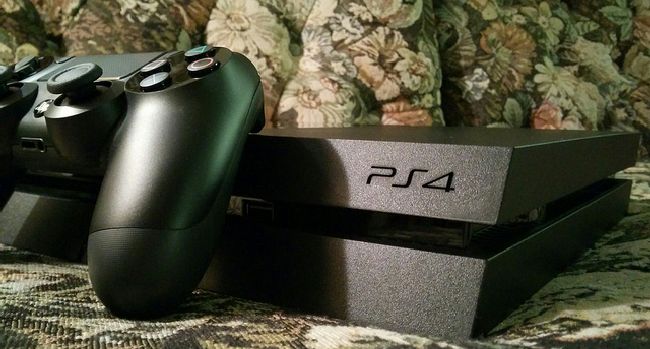Evil wizards, axe-wielding psychopaths and bloodthirsty orcs are just a handful of the dangers lurking in the world of video games, but the most dangerous among these gaming baddies is actually a creature of flesh and blood. From hackers to identity thieves, the dangers of the electronic age don’t stop simply because you’re playing a video game. Gaming is more interactive than ever and gamers have the opportunity to connect, share and play around the world, but with these new innovations comes a new set of security risks.
No ad to show here.
The PlayStation 4 launched 15 November 2013 in the US, quickly becoming the fastest-selling console in Sony’s history. The entire stock of shiny new games consoles flew off of the shelves in less than 24 hours, giving gamers all over the country access to a whole new world of digital entertainment.
But with those new ways to have fun come brand new ways for unwary gamers to be taken advantage of. In 2012, thousands of PlayStation 3 owners from around the world discovered that their user information and credit card numbers had been compromised, resulting in the entire PlayStation Network being shut down for more than a month. The security scare has made gamers more cautious and developers more careful, but there are still ways cyber criminals can access information if it isn’t kept secure enough. Since the hacking scare, Sony has bolstered its security measures and, if you’re one of the proud new owners of a PlayStation 4, you should take the same sort of precautions into consideration.
Note: all these tips can also be applied to Xbox One, as each console is very similar in regards to content sharing.
Who needs a credit card?
It’s easy to buy digital copies of games straight from your PS4 console, but this poses some risks when you have to enter your credit cards information into the network. One of the best ways to ensure that your credit card information is safe is to never actually use it on your new PS4. It’s handy to have a credit card at the ready when shopping for digital games, but you can completely sidestep any worries of having that information compromised by investing in PlayStation Network cards instead.
Available in stores all over the country or online, gamers can pick up these cards in various denominations, plug in their unique codes and get to spending their digital bucks without ever having to provide their credit card information. If, however, you prefer the ease of using your own credit card and want to go the extra mile, you could always look into a third-party identity theft monitoring company like LifeLock to keep an eye on those transactions for you.
Keep your private information private
As outlined on Sony’s own PlayStation website, it’s not just hackers who can get a hold of your private information. Just like when using the computer, you’ve got to watch what you say and what information you give when gaming on a PS4. Never give out personal information or your location when gaming online. The new PlayStation has some amazing features when it comes to a truly interactive gaming experience, especially when playing with other gamers.
The new camera and the heavy focus on sharing your gaming experience is a fun and exciting way to immerse yourself in your game, but there are more ways than ever for the crafty to swipe your information. Stick to talking about the game you’re playing (and other game related topics). Think before you speak or broadcast, and you should be fine.
Only BFFs
The PlayStation 4 now offers a new way to stay connected with your real-world friends, letting gamers request and share their real names at the push of a button. This can be a fun way to interact with fellow gamers and connect with your friends. However, you probably don’t want to make new friends this way since you don’t actually know who they are. If you’re not dealing with an actual friend that you know and trust, it’s not a good idea to give your real name. This new feature is linked directly to Facebook, which means your real picture will be included in your profile.
If you don’t want complete strangers to have access to your real name and what you look like, don’t connect your Facebook profile to your account. It may be a fun idea, but you are releasing a lot of personal information out there that you might not realize. It’s best to stick to purely gaming and stay away from being too social, so don’t get too friendly with REXBlingXXX612 unless you know who they actually are.
Lock and key
As pointed out in a recent Forbes article by Larry Magid, it’s important to remember that just like most pieces of modern technology, your PlayStation 4 offers access to passwords, parental controls and facial recognition to keep things nice and safe. This innovative technology really works to “get to know you.” This includes personal preferences and personal information, which is not necessarily a bad thing. The intricate recognition allows the system to detect suspicious behavior that is not your own. The personalized software will load games that it thinks you will like and alerts you to multiplayer games it thinks you’d be interested in. These features are convenient, but you still must access them with caution.
Creating a master account allows you to set limits on what other users of your console are allowed to have access to, and it doesn’t matter how good the kids are at guessing your password if the only way for them to log in to the PS4 is with your actual face being planted in front of the TV.
PS4 image via Flickr by Jfingas
